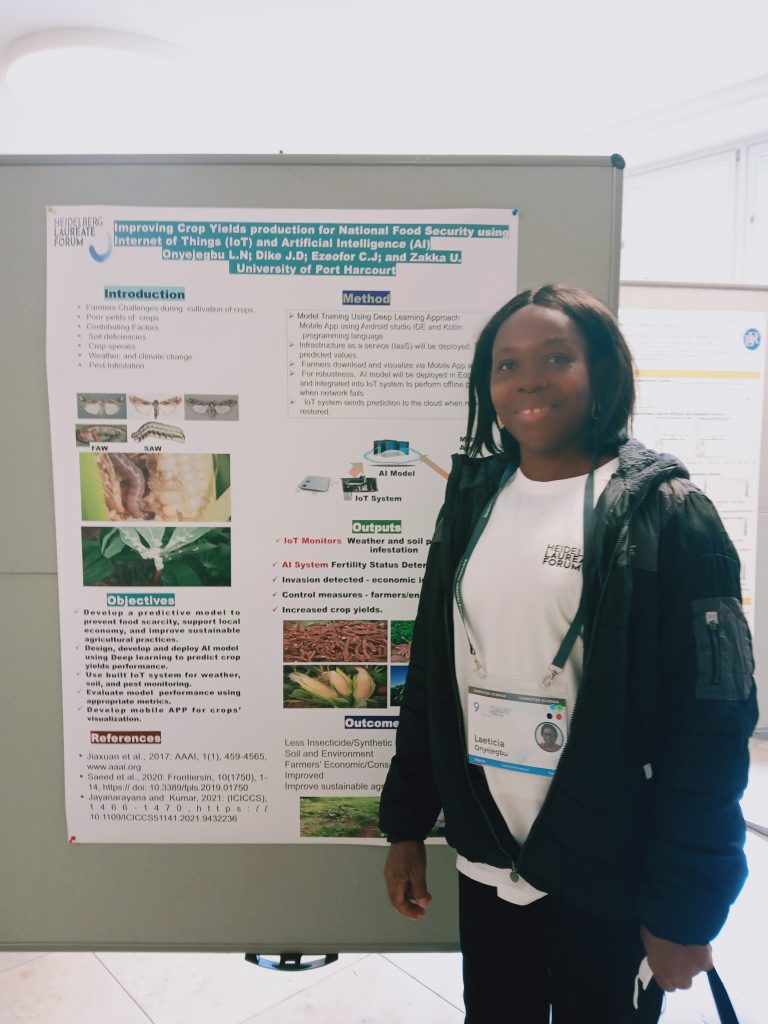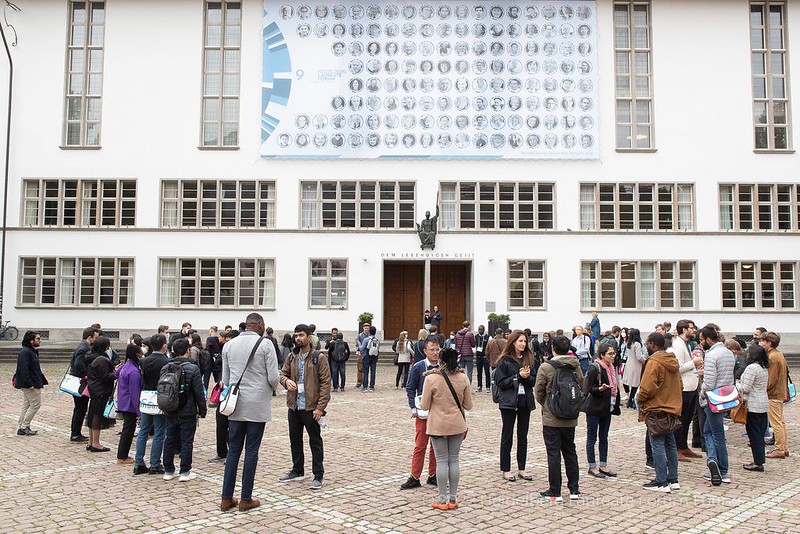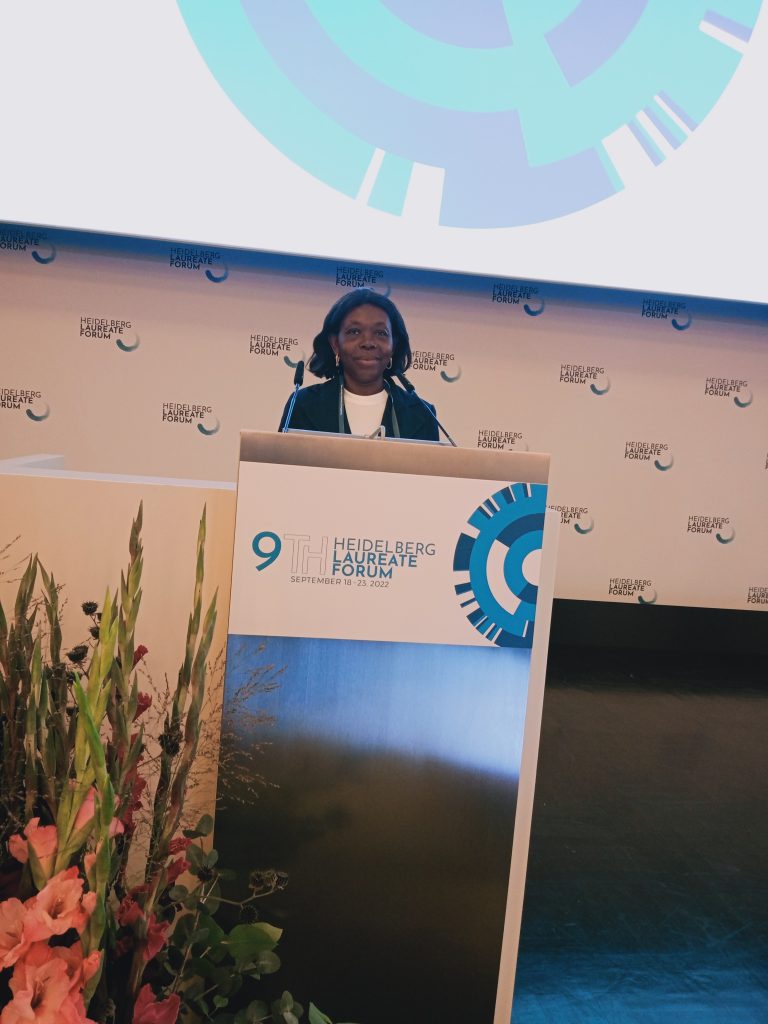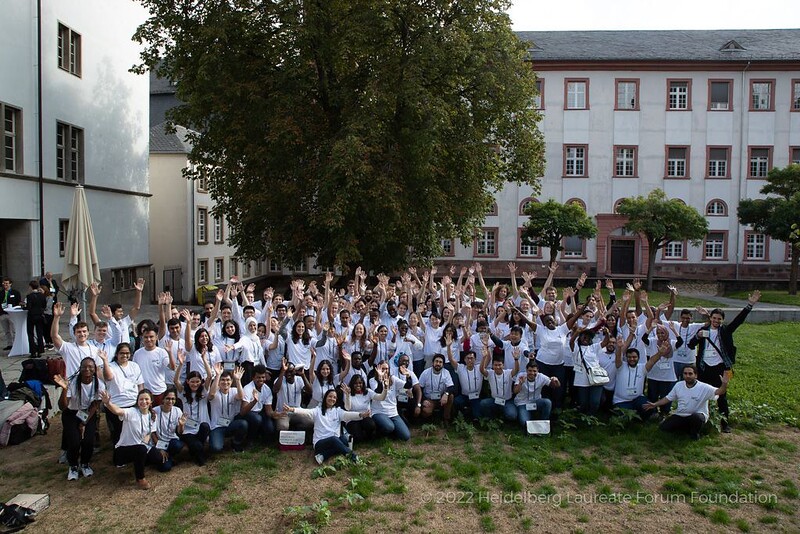By Hussaini Garba Mohammed, in Heidelberg, Germany
Relocating is a common experience for many young scientists. Researchers can broaden their scientific expertise, discuss new ideas, and create meaningful relationships and collaborations by moving abroad, or staying in their own country to contribute more for the scientific ideas, tracking the movement of early-stage of young researchers around the world would create a complex network joining the most diverse places, connecting the researchers to the old laureate. An interview with Dr. Laeticia Onyejegbu during the The Heidelberg Laureate Forum (HLF) 2022 in Heidelberg -Germany.

Can you please introduce yourself and how you where been selected among the young researchers to be at this wonderful event HLF 2022 to us?
I applied for the 9th Heidelberg Laureate Forum grant, and I was shortlisted among those selected.
Could you tell me about your area of expertise and your recent research activities in your country and abroad?
My area of expertise is in Artificial Intelligence, Intelligent Systems and Web Technology. My recent research activity is in Smart Agriculture. Using AI and Internet of things (IoT) to improve crop yields in Nigeria and Africa in general.
What are the benefits of performing research at the younger age? What did you not expect?
The benefit is that l had the zeal to work hard and succeed without much distraction. I expected having enough fund to carry out research and getting materials such as free internet connectivity, journal articles, and mentors abroad to guide me in my research.
How many on-going projects you are working on that will help you to a higher level?
I and my research team have proposed to work on “Predictive model for cassava and maize crop yields for national food security and global production in Africa”. This work will help to prevent food scarcity and address food security. It will support the local economy and improve sustainable agricultural practices in Nigeria and Africa in general. I look forward to seeing farmers grow their plants to their full potential, improve their crop yields, and enjoy abundant harvests by applying Internet of Things (IoT) and Artificial Intelligence (AI).

As a computational scientist, you are not tied to a physical location to carry out your research. Do you find working alone like this challenging?
I do not find working alone as a challenge but, it is good to collaborate.

How many countries have you travel to carry out your research or attended an international conference in in the last 5 years?
I was supposed to travel to Munich Germany in December, 2021 for a conference of Responsible Artificial Intelligence Network (RAIN)- Africa. But it was cancelled because of Covid-19. I did my paper presentation on the 7th December, 2021 online. I have another conference Future Technologies conference, coming up in October, 2022 at Canada. I will be presenting my paper online.
Do you have any tip for those who are now thinking about a career in scientific research?
I will love to encourage them and to let them know that there is nothing that they cannot achieve in terms of scientific research if they remain focused and determined.
